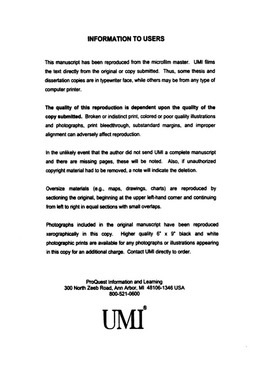| dc.contributor.advisor | Ormsbee, Christine, | en_US |
| dc.contributor.author | Rose, James Lee. | en_US |
| dc.date.accessioned | 2013-08-16T12:18:24Z | |
| dc.date.available | 2013-08-16T12:18:24Z | |
| dc.date.issued | 2001 | en_US |
| dc.identifier.uri | https://hdl.handle.net/11244/376 | |
| dc.description.abstract | This three-year investigation sought to answer two primary questions. First, a teacher survey, addressing accommodation-making, teacher training, student participation and accountability, was administered to special educators over a three-year period, prior to and after the implementation of PL 105-17, Reauthorization of IDEA-1997. During this three-year period, teachers received annual training regarding assessing students with special needs. Training came in the form of a quarterly newsletter, direct teacher in-service training, and experiential opportunities through the implementation of the IDEA-97 assessment requirements. Secondly, special educators were administered five vignettes, each depicting a student with various needs. Teachers were asked to identify each student's area of disability, type of accommodation the student most likely needed, and to list all possible accommodation(s) they thought would be appropriate for the identified student when participating in a state mandated assessment. | en_US |
| dc.description.abstract | Teachers responding to the vignette study experienced very little difficulty identifying a student's area of disability, or the area of accommodation making. However, they experienced great difficulty identifying appropriate accommodations for students with disabilities of low incidence, i.e., mental retardation and multiple disabilities. | en_US |
| dc.description.abstract | Results indicated special educators readily made accommodations for students with special needs but sometimes felt they were too time-consuming. During Year 1 of the survey, teachers indicated they would gladly participate in training but less so by Year 3. Teachers in general believe students with special needs should have accommodations made available to them alone and not to the general education student population as well. Finally, teachers vacillated on the questions regarding accountability. In general, teachers expressed concerns about student performance being a reflection of their teaching skills. | en_US |
| dc.format.extent | vii, 145 leaves ; | en_US |
| dc.subject | Education, Special. | en_US |
| dc.subject | Educational tests and measurements Public opinion. | en_US |
| dc.subject | Students with disabilities Rating of. | en_US |
| dc.subject | Educational tests and measurements. | en_US |
| dc.subject | Education, Tests and Measurements. | en_US |
| dc.subject | Teachers of children with disabilities Attitudes. | en_US |
| dc.title | State-mandated assessments: Teacher perceptions and accomodation-making. | en_US |
| dc.type | Thesis | en_US |
| dc.thesis.degree | Ph.D. | en_US |
| dc.thesis.degreeDiscipline | Department of Educational Psychology | en_US |
| dc.note | Source: Dissertation Abstracts International, Volume: 62-10, Section: A, page: 3348. | en_US |
| dc.note | Chair: Christine Ormsbee. | en_US |
| ou.identifier | (UMI)AAI3028804 | en_US |
| ou.group | Jeannine Rainbolt College of Education::Department of Educational Psychology | |
